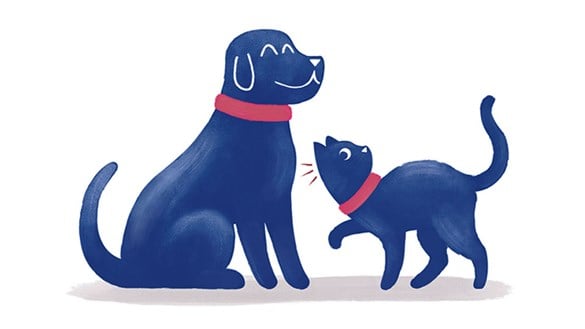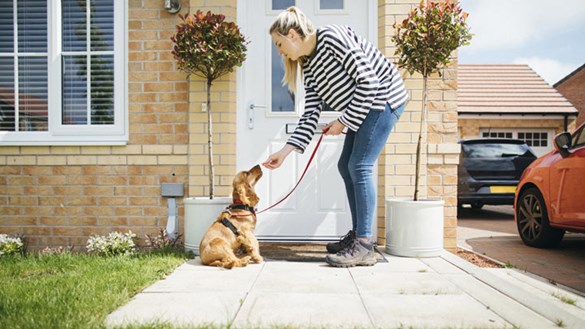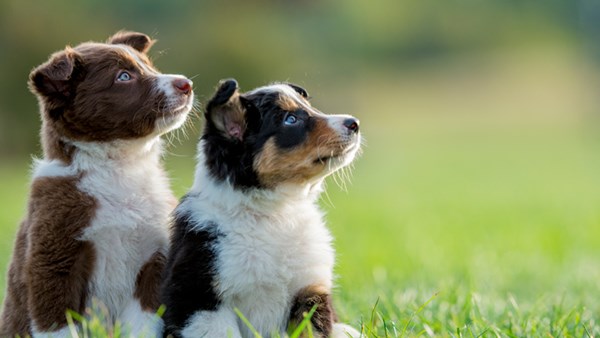Dog Theft
What to do if your dog is stolen
A stolen dog is very upsetting for every owner. Our advice will help with preventing the theft of your dog and what to do should your dog be lost or stolen.
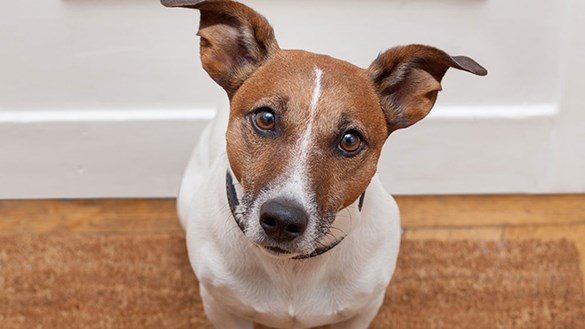
Dog thefts on the rise
The global pandemic has seen a dramatic increase in dog theft, with ITV news reporting that this could be up by as much as 170%. This increase is driven by the huge demand for puppies and dogs since lockdown began. This has led to a huge increase in the cost of a new puppy and seen the price for some popular breeds quadruple. It’s a worrying trend, which isn’t helped by the lenient punishment associated with the theft of a dog.
Dog theft is a real concern for dog-owners, the loss of your dog, who’s an important and much-loved member of the family, is heartbreaking, and many are never returned despite best efforts and high-value rewards.
It’s important to remember that it’s not just puppies that are being targeted; adult dogs are also a target. If your dog is unneutered, they will be stolen and used to breed, with the thieves making their money by selling on the puppies. There are varying reports around the most commonly stolen breeds, but Spaniels, Cockapoos and French Bulldogs appear on most lists
There’s been a lot of media coverage, and as owners become more vigilant, the thieves adapt to ensure that they’re still able to make money. There are several steps that you can take to protect your dog and you may have many of them in place already – take a look at our steps below to keep your dog safe and with you where they belong.
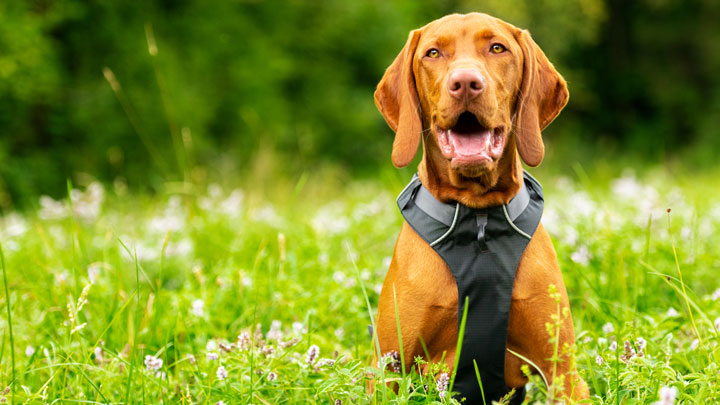
12 steps to prevent dog theft
There's a lot you can do to help prevent dog theft. Here are 12 steps to help you prevent your dog from being stolen:
- Get your dog neutered to prevent them being a target for breeding farms. Neutered dogs are less appealing to thieves due to their inability to reproduce; consider adding an ‘I am neutered’ tag to their collar.
- Microchip your dog; whilst this isn’t visible to thieves, it can mean that your pet is returned if they’re stolen and then found by the police.
- Make sure your dog has an ID tag on their collar that clearly displays your contact details and your name; a mobile number is ideal for swift contact. We recommend not including your dog’s name on their collar, as thieves could use it to lure them away.
- Keep good clear photos of your dog, for identification and proof of ownership. These should be recent and include pictures of any distinguishing marks.
- Walk your dog in well-lit areas, and, wherever possible, where there are other people. Mix up your route and dog-walking times a little to ensure that a thief doesn’t get to know your exact routine.
- Keep your dog in sight if they are off the lead, don’t throw balls too far. You should also ensure your dog has sharp recall skills, so that you can get them back to you quickly if a suspicious stranger approaches them.
- If you do need to use a dog-walker or day-care, always choose a local company that you know of or who come highly recommended.
- Supervise your dog if younger members of the family are keen to get involved and walk them.
- Secure your garden, as well as ensuring your dog can’t get out, do what you can to make sure that nobody can easily get in. Fit CCTV if possible, as this may act as a deterrent.
- Make sure that your garden gate is fitted with a sturdy lock and it would also help if there’s a bell fitted – so that it alerts you when somebody opens the gate.
- Ensure that when your dog is enjoying time in the garden, you can see them at all times.
- Never leave your dog unsupervised outside a shop or in your car (especially in hot weather); thieves are opportunists and if they see a dog that they believe can make them money they will strike.
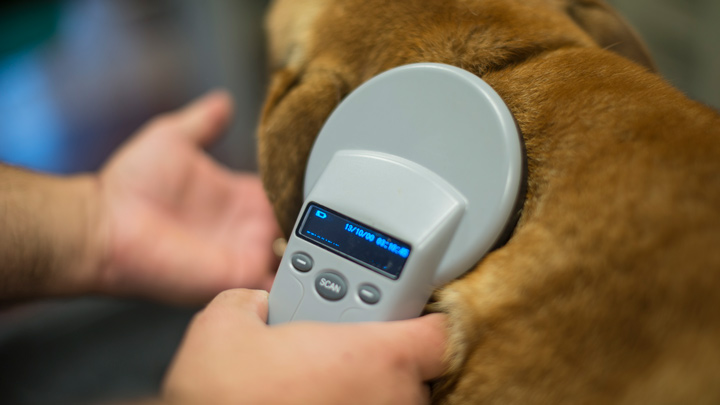
The lengths that the thieves are going to is alarming, don’t make yourself an easy target. It’s natural to want to share your lovely pet with your friends on social media, but make sure that your privacy settings mean that the public can’t get too much detail. Likewise, your location settings can be a good indicator of where a thief could find you.
It all feels pretty scary, but some small changes can go a long way to ensuring your dog stays safe. It’s still important to remember that for young puppies, socialisation is key – this doesn’t mean that they shouldn’t be taught how to approach people, you just need to ensure that it’s people that you know and trust.
Read more on puppy socialisation
What to do if your dog is lost or stolen
In the event that your dog is stolen or lost, it’s important that you take quick action. As time is of the essence, try and have some of the telephone numbers and websites below easily accessible, this will enable you to take immediate action.
You should:
- Report it to the police immediately and ask for a crime reference number. If you know your pet has been stolen, make this clear.
- Post on as many local Facebook groups as possible, describing your dog and the location details; include details like chipped and neutered (if the thieves see that the pet is neutered they may release your dog). This is where recent and clear pictures are helpful. Enlist the help of family and friends to cover Facebook groups in your area and surrounding areas.
- Notify the local Dog warden and all vets and animal rescue centres in your area. Visit doglost.co.uk. DogLost is a free-of-charge service that aims to reunite lost or stolen dogs with their owners.
- Contact your microchip provider, they will register that your dog is missing.
- If your pet was taken from a public place, find out if there are any CCTV cameras in the area and ask the police or local council to search it for evidence.
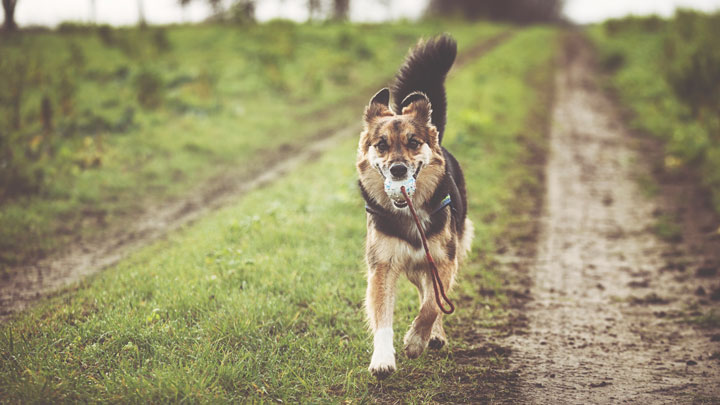
Your pet insurance policy may provide you financial support in the event that your dog is stolen (or lost); this is to help with the cost of advertising and to cover any reward offered. The amount will vary based on your policy.
Dog owners are currently petitioning for tougher punishments for dog theft. This has already achieved almost double the number of signatures required to be debated in parliament. More details can be found here.


